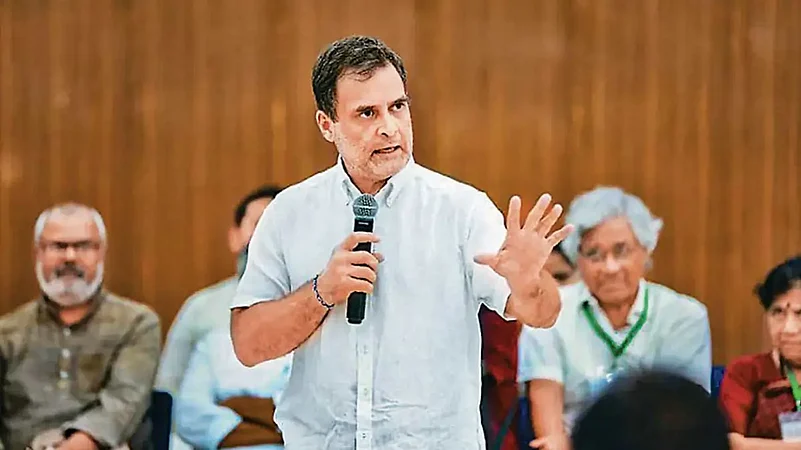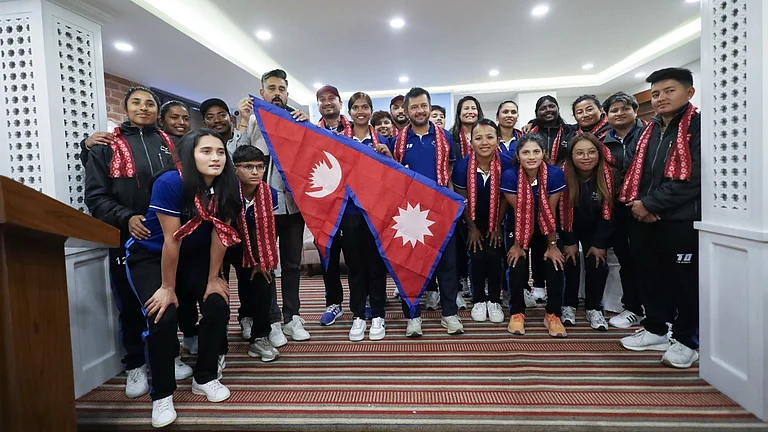It is said that challenges never come alone. In the context of what is going on in Congress at the moment, it appears to be true. Ironically, whenever the current and long-standing high command of the country's oldest party, the Nehru-Gandhi family, sets out to try out something new to give a fresh lease of life to Congress, senior leaders start quitting the party in a huff.
As it recently happened in the case of veteran Congress leader Ghulam Nabi Azad, the moment Rahul Gandhi announced an ambitious countrywide yatra such as 'Bharat Jodo Yatra (Unite India march)’, he not only left the party but also used such bitter words against Rahul that any other leader had hardly spoken against him in the past. In a five-page letter to Congress President Sonia Gandhi, he almost ridiculed the party’s plans for the padyatra of about 3,500 km from Kanyakumari to Kashmir. "First unite the Congress," he advised.
Azad, who has been a prominent leader of the disgruntled G-23 faction that wrote a letter to Sonia Gandhi in September last year seeking the election of a full-time and accountable president of the Congress and of all the office-bearers of the organisation, including its working committee, the highest decision-making body of the party. In fact, Rahul Gandhi stepped down as the president after the party's defeat in the 2019 general elections when Congress could win only 55 seats with 19.5 per cent of the vote share, which was marginally better than its 44-seat performance in 2014.

Since then, Sonia has remained the interim president, but Rahul Gandhi and his sister Priyanka have more or less been taking all the decisions of the party. That's why when Azad raised questions over the leadership saying he does not get respect within the party, it is difficult to meet Rahul, who is surrounded by a coterie of sycophants and all the decisions of the party are taken by his guard-driver-PA, former Maharashtra Chief Minister Prithviraj Chavan, Punjab MP Manish Tewari and a few other leaders seemed to agree.
On the sharp statements of Azad, the leaders loyal to the high command, however, hit back at him for his “Modi-Prem (love for Modi)”, but it soon led to the announcement of the election of the Congress President. The party’s election committee chairman Madhusudan Mistry announced that the election process would begin on September 24 and end on October 17, but the results would be announced on October 8, the date for withdrawal of papers, if there is only one candidate in the fray. With Rahul almost announcing that he or none of the Gandhi family will become the president, speculations have begun that someone from outside the Nehru-Gandhi family might become the president this time.
Revamp of Congress Party
Before going abroad for treatment, Sonia Gandhi had reportedly asked Rajasthan Chief Minister Ashok Gehlot to take over as the party president. It is said that Gehlot was not ready. Perhaps the high command had planned to hand over the reins of the Rajasthan government to Sachin Pilot. A few days back, speculations were also rife that former Haryana Chief Minister Bhupinder Singh Hooda had been called to Delhi to discuss the issue.
If Hooda is ready to accept the responsibility, political observers believe, the party might get a few benefits. Firstly, the trend of exit of the G-23 leaders may slow down because he himself has been involved in the disgruntled faction. Secondly, it may have an impact on the Jat belt of Haryana, Rajasthan, Western Uttar Pradesh, and even in Punjab. Apparently, the calculation behind making Gehlot or Hooda the next Congress president is to send out a message to the backward castes. The BJP has been trying to get the votes of the backward classes by projecting Prime Minister Narendra Modi as a backward caste leader and the Congress wants to counter that.
Whatever happens, no ray of hope seems to be emerging right now from the Congress camp. Rahul's team has placed a lot of hope on the proposed unity tour. History shows that such yatras have always proved politically beneficial in the country. From former Prime Minister Chandrashekhar to Jaganmohan Reddy of Andhra Pradesh in recent times, there have been many examples of leaders who undertook highly successful yatras.
Therefore, if Rahul leads the proposed yatra with determination and makes inroads into the rural communities it should help Congress make a political impact. There is also speculation in political circles about some unease in the BJP and Sangh Parivar over the Congress's yatra. Ghulam Nabi's scathing criticism of Rahul is also being linked to it.
Political observers also talk about the BJP's growing influence on Azad, who was awarded Padma Bhushan during the Modi’s regime. It is said that he might align with BJP in the impending Kashmir elections, although Azad himself has categorically said that he has nothing to do with the BJP and that he would never go with BJP in Kashmir. In fact, he calls Captain Amarinder Singh's decision to go with the BJP in Punjab wrong. In such a situation, it is difficult to say how things will pan out in the months ahead.
Bharat Jodo Yatra
Meanwhile, Congress has stepped up bids to connect with mass movements and civil society in different places through its ambitious Bharat Jodo Yatra. One such meeting was held in Delhi on August 22. It is difficult to say at the moment how much impact such a move will make but people’s movements have helped in creating a narrative, as it did during the Anna Hazare movement. Hence, nothing can be ruled out.
Also, there is a large block of secular and liberal sections in the country, apart from various religious minorities, non-Hindu communities and traditional anti-Sangh Parivar and RSS votes, which might turn to the Congress. Despite the Modi wave, the BJP's vote share still remains only 37 per cent. So, in principle, there is a lot of room for the Congress and the Opposition to make their presence felt, provided they play their cards well and make a concerted bid to foster unity before the next general elections.
But the party might face a roadblock if senior leaders continue to hold grudges against Rahul. The Congress has suffered a lot, but it has not disintegrated like it did after Rahul came into the dominant role in 2014. At the same time, it is also true that any other Congress leader does not appear to be in a position yet to handle the crisis within the party. If leaders such as Gehlot or Mukul Wasnik are entrusted with the responsibility of the party leadership, then the command will likely remain in the hands of Rahul-Priyanka.
As far as Hooda is concerned, he may have clout in Haryana and adjoining states, but there is doubt that he will be able to make any significant difference at the national level. It is also worth mentioning that Shashi Tharoor has raised the demand to make the election to president transparent. This means that the leaders involved in the G-23 will continue to pull the strings.
Now, it remains to be seen whether the Congress confines itself to the Nehru-Gandhi family only as far as leadership is concerned or whether the party gets the new energy to revive itself ahead of the all-important 2024 Lok Sabha elections.





















